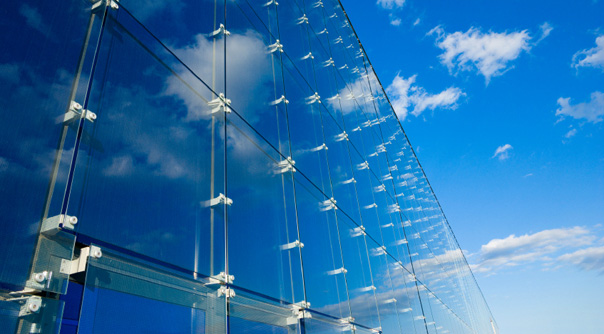Glass is one of the most versatile yet durable materials used today. Much more than just windows and doors, it is used in a variety of different ways. We have listed the 12 most common misconceptions about glass, and how it is often unappreciated and even unnoticed in everyday life.
1. Glass is actually a very slow flowing liquid – This is untrue. Many believe this due to the nature of old panes of glass, in which appears to be thicker at the bottom than the top. The reason for this distortion is simply how it used to be manufactured. Glass is an amorphous ceramic, meaning that it does not have a clearly defined shape or form
2. Triple glazing is more cost effective than double glazing – Although generally it is thought that the more panes of glass the better, the price of triple glazing in comparison to double glazing outweighs the possible benefits of cutting down on your heating bill in the colder months.
3. All glass items are recyclable – Unfortunately this is a common misconception many have about glass in terms of its recycling qualities. This leads to many people incorrectly recycling glass due to not knowing the correct method to dispose of reusable items. Glass is generally a great material to recycle as it can be melted down and reused endlessly without degradation to its quality. Types of glass that cannot be recycled however can include ceramics, light bulbs, mirrors, frosted glass, pyrex and windows, this is because of the way in which they are manufactured.
4. All glass is the same, just clear or patterned – There are many different types of glass and effects that can be applied, depending on what the glass will be used for. For instance, the glass that is in a door panel is likely to be very different to the glass used for a double glazed window. The many effects and finishes that can be applied to toughened and float can add both aesthetic appeal and serve well for home security.
5. uPVC windows discolour easily – Years ago, this may have been true. Over the years however, there have been many advancements in the way that uPVC windows are manufactured. It is extremely unlikely to have uPVC windows that discolour these days.





